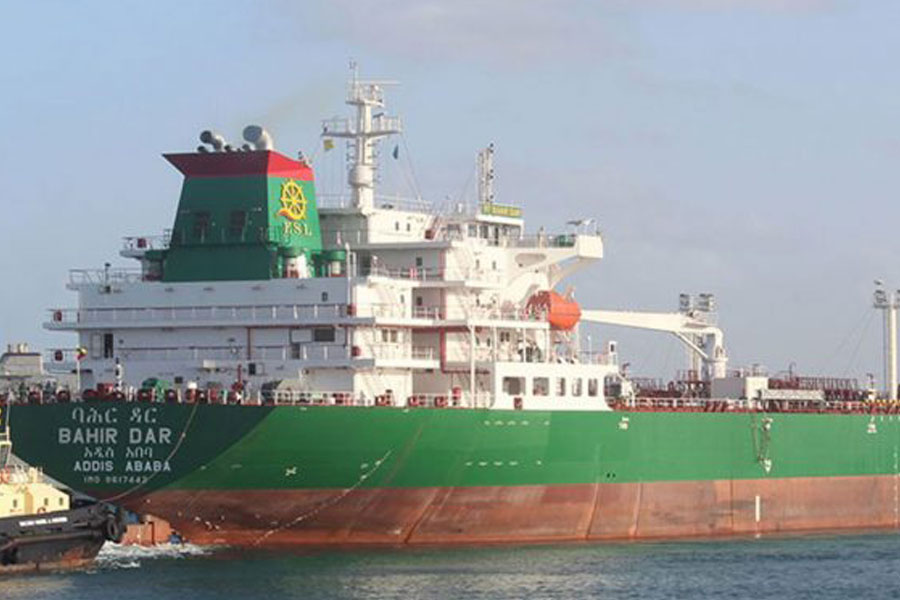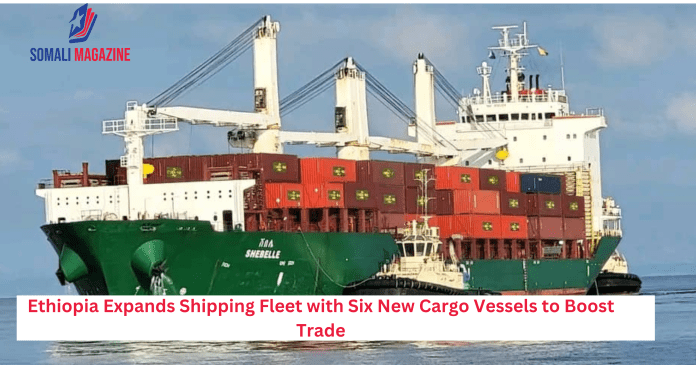Facebook Twitter Instagram Somali Magazine - People's Magazine
State-run Ethiopian Shipping and Logistics Services Enterprise acquires two Ultramax bulk carriers, with four more ships to follow, strengthening the nation’s maritime trade capacity
Ethiopia is set to enhance its maritime trade capabilities by acquiring six new cargo ships, according to an announcement made on Thursday by the state-owned Ethiopian Shipping and Logistics Services Enterprise (ESLSE). The expansion is projected to cost between 150 million and 250 million US dollars, based on prevailing global market rates.
The shipping enterprise disclosed that it had purchased two Ultramax dry bulk carriers, each with a capacity of 62,000 tons, during the current fiscal year. These vessels are expected to begin operations soon, bolstering the country’s capacity to manage its import and export activities more efficiently. In addition to these, four more ships will be added to the fleet in the coming years, though no specific timeline has been provided.
Ethiopian shipping officials emphasized that this expansion is a strategic move aimed at strengthening the country’s trade and investment landscape. As a landlocked nation, Ethiopia relies heavily on maritime trade for its economic activities, primarily through the port of Djibouti. By increasing its shipping capabilities, the country hopes to gain more control over its logistics needs, reduce its dependency on foreign shipping companies, and improve the efficiency of its supply chain.
Currently, Ethiopia operates a fleet of 10 cargo vessels, which include the Abay 2, a ship with a carrying capacity of 63,000 tons, as well as several smaller vessels ranging from 26,000 to 27,000 tons. These ships play a crucial role in facilitating Ethiopia’s import and export trade, particularly in handling agricultural products, manufactured goods, and essential commodities.
International shipbuilding data provides insights into the estimated costs of these vessels. The Ultramax dry bulk carriers, similar to the ones recently acquired by Ethiopia, are generally priced between 25 million and 35 million US dollars each. Meanwhile, container ships with a capacity of 3,000 to 4,000 containers typically cost between 40 million and 60 million US dollars per vessel. Given these market rates, the total cost for all six ships could range from 150 million to 250 million US dollars. However, ESLSE has not confirmed the exact figures, nor has it specified whether the newly acquired vessels are brand new or second-hand.
This investment is part of Ethiopia’s broader strategy to strengthen its maritime transport sector, ensuring that it remains competitive in global trade. By expanding its fleet, the country aims to mitigate the challenges associated with being landlocked, such as high transportation costs and delays caused by reliance on external shipping providers. Strengthening its logistics sector is also expected to attract more investors, as efficient transport infrastructure is a key factor in facilitating trade and economic growth.

Despite the ambitious expansion, Ethiopia still faces logistical challenges, particularly concerning access to seaports. Currently, more than 90% of its maritime trade is conducted through the port of Djibouti, necessitating high transit costs and complex coordination efforts. The government has been exploring alternative port access routes, including agreements with neighboring countries such as Somaliland and Eritrea, to secure diversified maritime connections.
In addition to acquiring new vessels, Ethiopia is also focusing on modernizing its logistics sector through digital transformation and infrastructure improvements. Efforts are being made to enhance port facilities, streamline customs procedures, and optimize shipping routes to improve overall efficiency.
As Ethiopia continues to expand its shipping fleet, the move is expected to bring long-term benefits to the nation’s economy. By owning and operating a greater number of cargo ships, Ethiopia can exert more influence over its trade routes, reduce freight costs, and ensure a more stable and efficient transportation network for businesses and industries reliant on global trade.
While the acquisition of these ships marks a significant milestone, experts believe that sustained investments in port infrastructure, logistics management, and international partnerships will be essential in maximizing the benefits of Ethiopia’s growing shipping fleet. If the expansion is successfully implemented, it could contribute to making Ethiopia a stronger player in the regional and global trade landscape.

